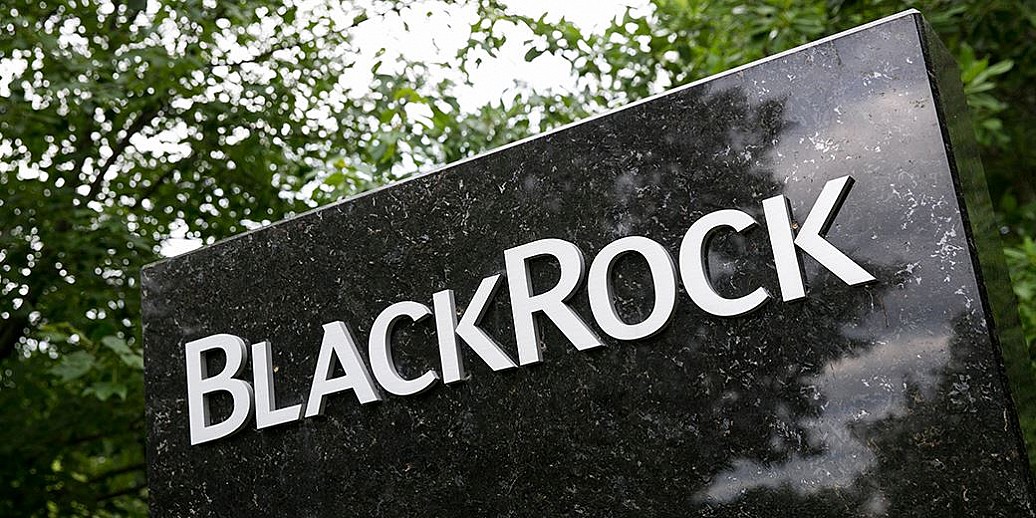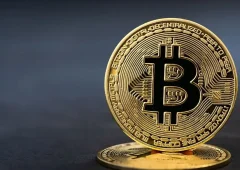BlackRock’s AUM Hits New High, Boosted by ETF Growth
15.07.2024 17:15 1 min. read Alexander Stefanov
Financial titan BlackRock reached a significant milestone by managing over $10.6 trillion in assets.
This growth of around $1.3 trillion in one year is largely driven by the soaring inflows into its ETFs.
The iShares Bitcoin Trust (IBIT), BlackRock’s largest spot Bitcoin ETF, holds more than $19.4 billion in Bitcoin, securing a 35.2% market share among US Bitcoin ETFs. The firm’s significant market influence means its trading activities can considerably impact Bitcoin’s price.
In the second quarter of 2024, investors poured $83 billion into BlackRock’s ETFs, bringing the year-to-date total to over $150 billion. This influx resulted in an 8% revenue increase and an 11% rise in operating income year-over-year.
Larry Fink, the company’s CEO, attributes part of this success to BlackRock’s strong corporate and governmental relationships, enhancing its capital partnership in private markets.
Bitcoin’s price recently rose to almost $63,000 due to positive BTC ETF inflows, optimistic views on a potential rate cut by the Fed this year and the assassination attempt on Donald Trump. US spot Bitcoin ETFs have seen net positive inflows for two consecutive weeks, totaling over $414 million, with BlackRock leading the charge on July 12, attracting over $120 million in investments.
-
1
Here’s Why Bitcoin Could Be Gearing Up for Its Next Move Despite the Pullback
09.06.2025 8:00 2 min. read -
2
BlackRock and Fidelity Pour Over $500M Into Bitcoin in One Day
25.06.2025 21:00 1 min. read -
3
Bitcoin to Track Global Economy, Not Dollars, Says Crypto Expert
09.06.2025 18:00 2 min. read -
4
Blockchain Group Bets Big on Bitcoin With Bold €300M Equity Deal
09.06.2025 22:00 2 min. read -
5
BlackRock’s Bitcoin ETF Breaks Into Top 15 Most Traded ETFs of 2025
12.06.2025 18:00 2 min. read
What Brian Armstrong’s New Stats Reveal About Institutional Crypto Growth
Coinbase CEO Brian Armstrong has spotlighted a significant acceleration in institutional crypto adoption, driven largely by the surging popularity of exchange-traded funds and increased use of Coinbase Prime among major corporations.
What Will Happen With the Stock Market if Trump Reshapes the Fed?
Jefferies chief market strategist David Zervos believes an upcoming power shift at the Federal Reserve could benefit U.S. equity markets.
U.S. Bank Advises Clients to Drop These Cryptocurrencies
Anchorage Digital, a federally chartered crypto custody bank, is urging its institutional clients to move away from major stablecoins like USDC, Agora USD (AUSD), and Usual USD (USD0), recommending instead a shift to the Global Dollar (USDG) — a stablecoin issued by Paxos and backed by a consortium that includes Anchorage itself.
Vitalik Buterin Warns Digital ID Projects Could End Pseudonymity
Ethereum co-founder Vitalik Buterin has voiced concerns over the rise of zero-knowledge (ZK) digital identity projects, specifically warning that systems like World — formerly Worldcoin and backed by OpenAI’s Sam Altman — could undermine pseudonymity in the digital world.
-
1
Here’s Why Bitcoin Could Be Gearing Up for Its Next Move Despite the Pullback
09.06.2025 8:00 2 min. read -
2
BlackRock and Fidelity Pour Over $500M Into Bitcoin in One Day
25.06.2025 21:00 1 min. read -
3
Bitcoin to Track Global Economy, Not Dollars, Says Crypto Expert
09.06.2025 18:00 2 min. read -
4
Blockchain Group Bets Big on Bitcoin With Bold €300M Equity Deal
09.06.2025 22:00 2 min. read -
5
BlackRock’s Bitcoin ETF Breaks Into Top 15 Most Traded ETFs of 2025
12.06.2025 18:00 2 min. read


